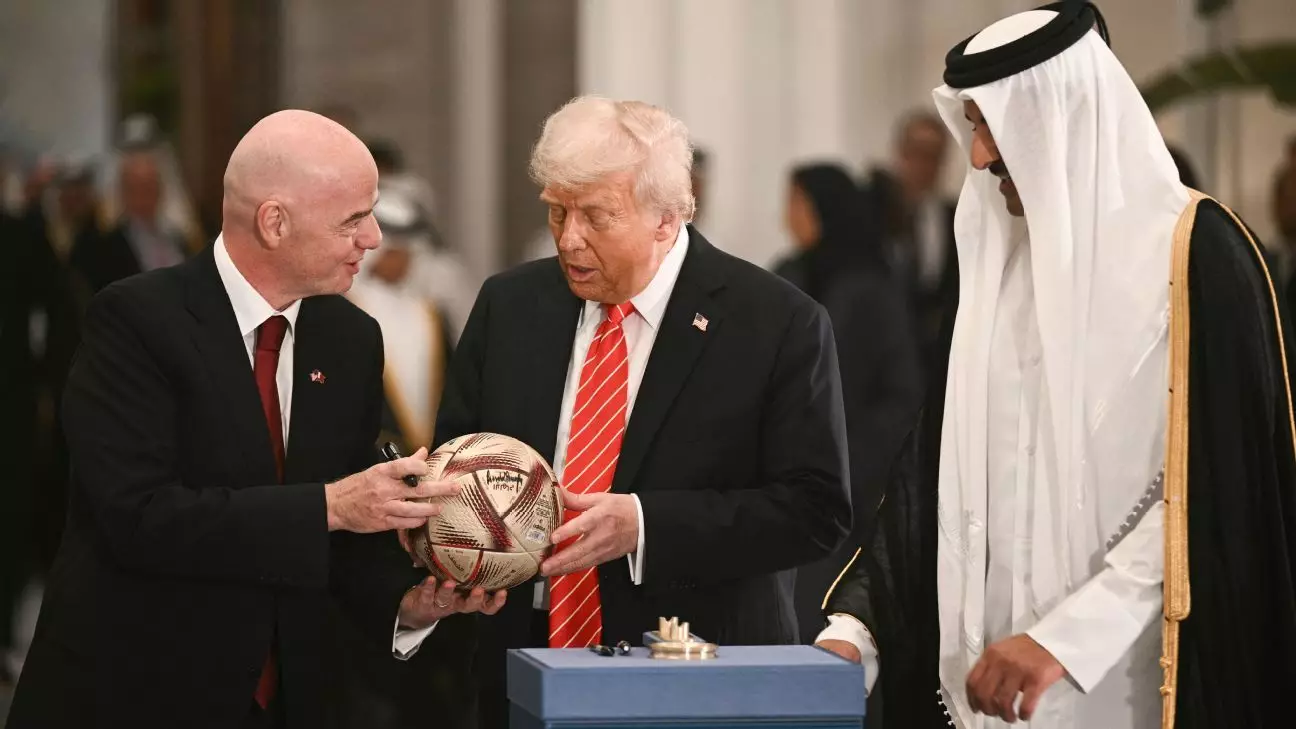In a striking display of mismanagement, the recent annual meeting of FIFA’s 211 member federations in Asunción, Paraguay, was marred by the late arrival of president Gianni Infantino. Scheduled for a 9:30 a.m. start, the meeting was pushed back over three hours, leading to significant disruptions. Infantino’s flight—reportedly on a private jet from Qatar, with a layover in Nigeria—arrived just in time for the proceedings but cast a shadow over the entire event. This delay raises profound questions about governance, responsibility, and the prioritization of leadership’s diplomatic engagements over organizational commitments.
While Infantino apologized repeatedly upon his arrival, his justifications about the importance of representing football at high-level meetings—namely with U.S. President Donald Trump during state visits to Saudi Arabia and Qatar—felt feeble against the backdrop of accumulating frustrations among federation officials. The display of prioritizing such political maneuvers over meeting fundamental organizational responsibilities reflects a growing issue within FIFA’s leadership: a lack of accountability and a skewed sense of priorities.
Empty Seats and Silent Protests
The consequences of Infantino’s tardiness were palpable. Several senior officials, particularly from UEFA and national federations, opted to leave the meeting early. This could have been due to prior commitments or an implicit protest against the president’s blatant disregard for the scheduled agenda. Take UEFA President Aleksander Ceferin, for instance—his absence only heightened the perception that Infantino’s mismanagement was not simply a minor hiccup but rather indicative of deeper discontent among the leadership of European football.
Moreover, the sight of empty seats on the main stage, especially where key UEFA figures should have sat, painted a poignant picture of dissent within the ranks. Such imagery signals an uncomfortable reality for FIFA: disunity at the highest levels can manifest in empty chairs, which in turn breeds disbandment within organizational camaraderie. The ramifications of these early departures should not be understated; they hint at a fundamental distrust in leadership, especially when leaders leave their most crucial tasks hanging in the balance.
Political Friendships vs. Organizational Unity
Infantino’s remarks positing his responsibility to make decisions in the best interests of FIFA were laudable in intention but poorly timed in execution. It raises the question: at what point do personal relationships and political alliances become detrimental to one’s responsibilities? His friendships, notably forged with the likes of Trump and Middle Eastern leaders, seemingly clouded his judgment on the necessity of being present at pivotal organizational events.
President Santiago Peña of Paraguay applauded Infantino as both a personal acquaintance and a friend of the nation, which carries its own implications. While cultivating relationships can elevate FIFA’s standing on an international platform, they must not supersede the basic decency and respect owed to member federations. Infantino’s penchant for these high-profile diplomatic engagements draws attention away from a more pressing concern: the integrity and operational efficacy of FIFA itself.
The Future of FIFA Leadership
As FIFA prepares for the upcoming 2026 World Cup and the landmark event in 2030, it is crucial for Infantino and his team to reassess their approach to leadership and mediating relationships. Current events suggest a critical pivot point for FIFA, one where decisions made at the top will resonate down the ranks. It is imperative that the leadership begins to prioritize the organization over personal interests, lest they continue to muffle the voices of those who have a stake in the beautiful game.
The tension manifested through delayed meetings and early departures may very well signify the beginning of a broader movement within football towards accountability and transparency. Therefore, how Infantino navigates this challenging environment could redefine the future trajectory of FIFA’s governance. In this era of change, the call for alignment between personal relationships and organizational duties becomes not only imperative but urgent. As those within the realm of soccer brace for upcoming tournaments, they rightfully demand representation that resonates not only on a diplomatic stage but also within the very heart of their organizations.

